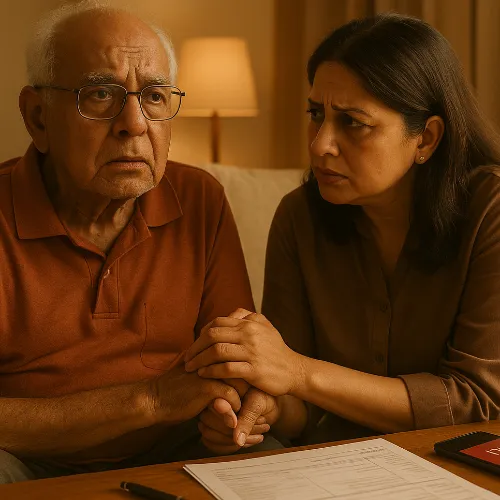
But suddenly, your loved one doesn’t recognize familiar faces. They’re awake all night. Scared. Aggressive. Disoriented.
Is this just dementia getting worse? Or something more urgent?
This blog breaks it down - simply, clearly, and from a place of deep clinical experience.
Most people think dementia is just memory loss. And while that’s true, it’s only part of the picture.
Dementia usually progresses gradually:
But when a person suddenly:
It’s not just dementia anymore.
It may be Delirium - and that’s a medical emergency.
Delirium is a sudden change in brain function. It causes confusion, restlessness, and even hallucinations.
It can happen to people with dementia due to:
And here’s why it’s dangerous:
If you notice any of the following, act fast:
|
Symptom |
Why It’s Dangerous |
|
1. Extreme fear or panic |
Can lead to self-harm or aggression |
|
2. Sudden violent behavior |
Risk to patient and caregivers |
|
3. Severe restlessness |
Increases risk of falls and injury |
|
4. Total sleeplessness |
Can worsen mental confusion rapidly |
|
5. Loss of time/place orientation |
Early sign of delirium |
Even one of these is reason enough to consult a psychiatrist immediately.
Some families hesitate to admit their loved ones, fearing stigma or over-medication.
But at Vazhikatti, our goal is safety and stabilization, not sedation.
In-Patient care is strongly advised if:
We provide:
|
✅ Condition |
✅ Action to Take |
|
Gradual memory loss |
OP Consultation, Regular Monitoring |
|
Sudden confusion or fear |
Emergency Psychiatric Evaluation |
|
Aggression or restlessness |
Possible IP Admission |
|
Sleeplessness, safety issues |
Emergency Care Recommended |
Book a consultation and get clarity on next steps.
You can speak with a qualified professional at Vazhikatti. Contact : 75075 50050